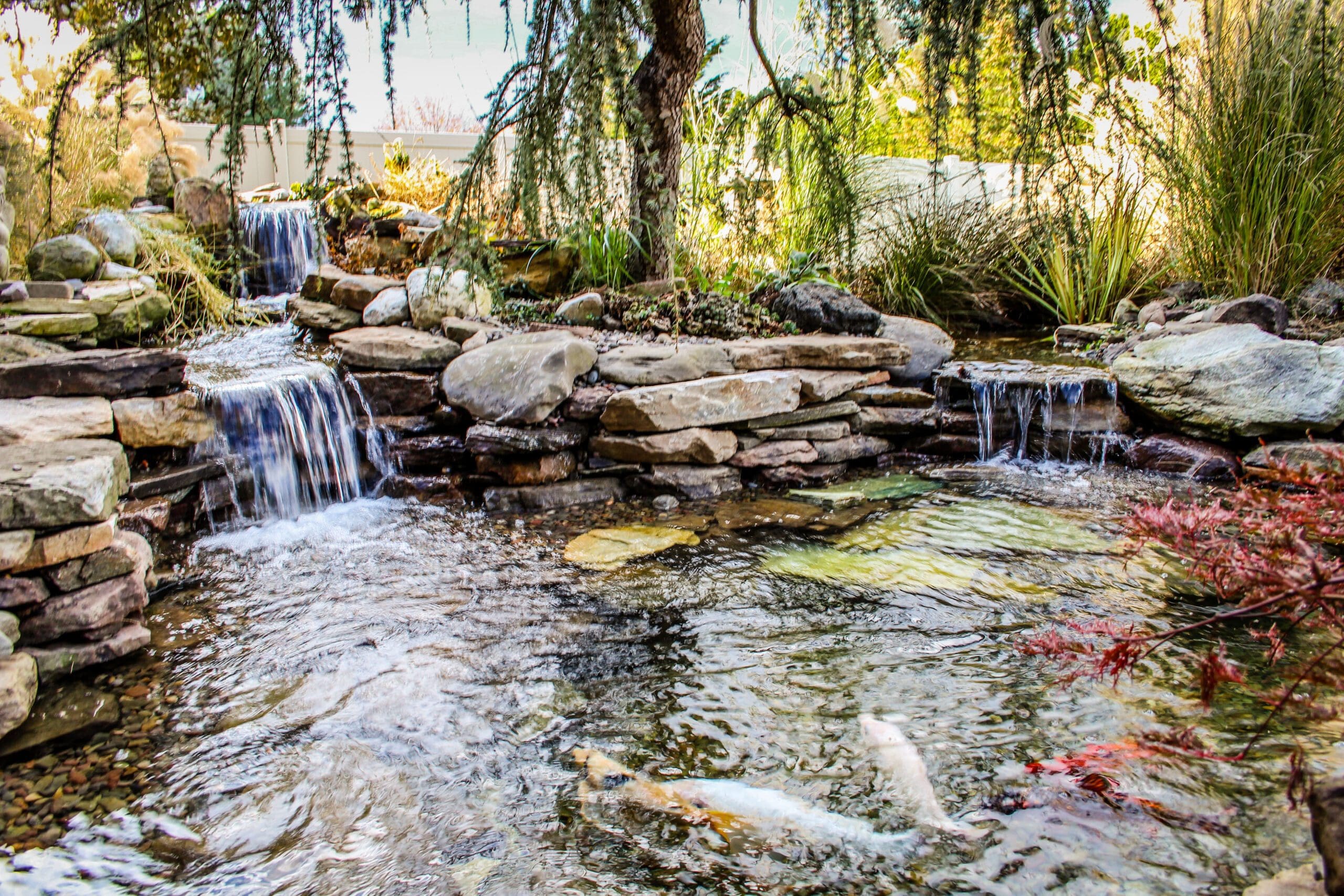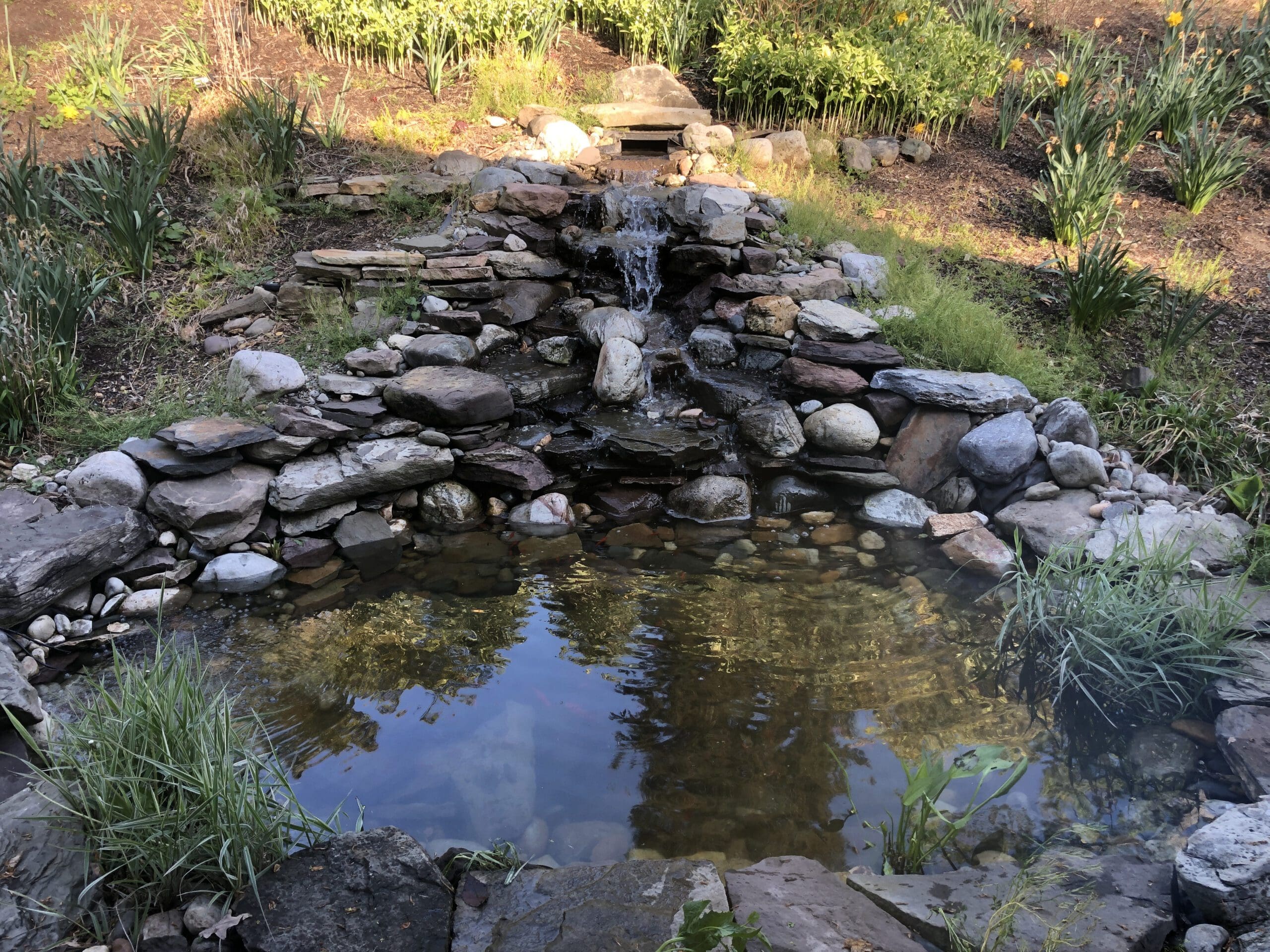Before they became staple features of pond culture, koi fish were originally bred for food in Japan. That was until their beautiful features began to impress their breeders. Koi soon became highly regarded creatures and thus their journey into ponds around the world began.
Koi are particularly notorious for their long lifespans. In ideal conditions, the lifespan of a koi fish can range anywhere from 15 to over 200 years! The overall average for a purebred Japanese Koi is closer to 50 years. Koi bred outside Japan can be expected to reach 15 years of age. The diverse patterns, colors, and scales of koi are not only beautiful, but they can also be used to determine their age. Like a tree, you can count the rings on their scales to determine an accurate estimate of their age.
If you’re in the market to raise koi fish of your own, life expectancy should be a major factor of consideration. Koi lifespan determines ownership commitment, which is crucial to ensuring that you will be able to give your koi a lifelong home. There are multiple factors that impact the lifespan of koi such as genetics, water quality, environment, wintering, and nutrition. Koi kept in low-maintained environments only have a life expectancy of 3-5 years. Extend the lifespan of your Koi by considering the following:
Nutrition
As the owner, you have the power to ensure your fish are receiving all of the vital nutrients needed. Try and avoid the temptation of cheap fish food if you want to maximize their lifespan! Koi need a healthy diet to live a long life, but what is the best food for koi fish? Always read the label of any food you consider purchasing, and look for the following ingredients:
- Protein
- The first ingredient should be either fish meal or soy.
- Fats
- Young koi need 10% fats and adults need 3% fats in their diet.
- Carbohydrates
- Look for rose hips, soybeans, corn, or wheat in the first 5 ingredients
- Vitamins and Minerals
- Koi need calcium, phosphorus, magnesium, potassium, and sodium.
Many Koi hobbyists and pond owners feed their koi vegetables, insects, watermelon, rice, and protein such as dried shrimp.
Outdoor Environment Tips
Like most owners, you are probably planning to keep your koi fish in an outdoor pond. This decision is typically made in response to koi’s large size compared to other domestic fish breeds. When designing an outdoor environment for your koi, please consider the following:
- Bigger is Better
- Your koi fish will grow quickly; make sure they have room to grow.
- Sunlight
- While ponds need some sunlight, too much sunlight will cause koi to overheat and will encourage algae growth. Too much algae and bacteria leads to less than optimal water conditions.
- Depth
- Koi ponds should be at least 5 feet deep. Be sure to check where power lines are buried on your property before digging.
- Predators
- Outdoor ponds must be protected against predators who like to eat fish. For more information on how to protect your fish, read our article about pond predators.
- Plants
- An excellent way to keep your pond and koi in tip-top shape is to integrate a variety of aquatic plants into your water garden.
Conclusions
As amazing as the fact that some koi fish can live longer than their owners is, the responsibility that comes with owning a koi fish is even greater! All you need to do to give your koi fish long, healthy, and happy lives is to meet their environmental requirements and feed them a balanced, nutritional diet. Check out our other publications about koi fish care for more information on how to keep your fish happy and healthy!






